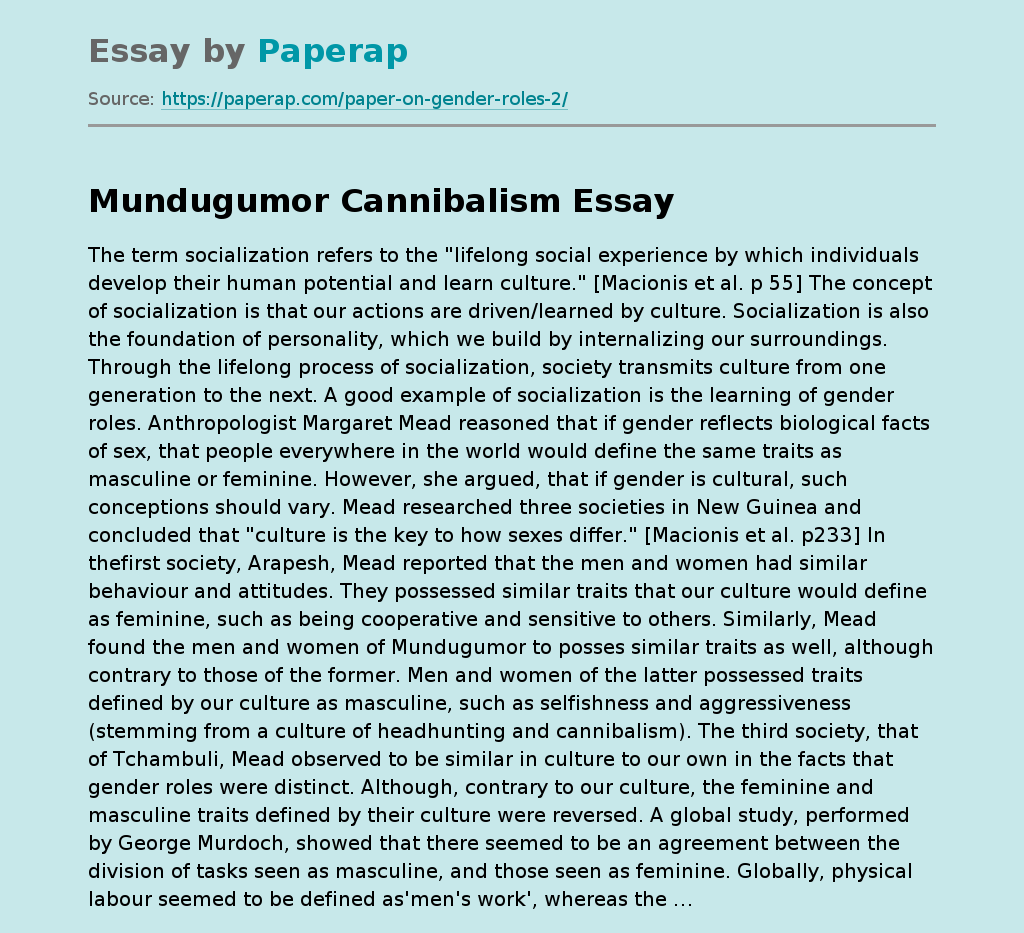Mundugumor Cannibalism
The term socialization refers to the “lifelong social experience by which individuals develop their human potential and learn culture.” [Macionis et al. p 55] The concept of socialization is that our actions are driven/learned by culture. Socialization is also the foundation of personality, which we build by internalizing our surroundings. Through the lifelong process of socialization, society transmits culture from one generation to the next. A good example of socialization is the learning of gender roles. Anthropologist Margaret Mead reasoned that if gender reflects biological facts of sex, that people everywhere in the world would define the same traits as masculine or feminine.
However, she argued, that if gender is cultural, such conceptions should vary. Mead researched three societies in New Guinea and concluded that “culture is the key to how sexes differ.” [Macionis et al. p233] In thefirst society, Arapesh, Mead reported that the men and women had similar behaviour and attitudes. They possessed similar traits that our culture would define as feminine, such as being cooperative and sensitive to others.
Similarly, Mead found the men and women of Mundugumor to posses similar traits as well, although contrary to those of the former. Men and women of the latter possessed traits defined by our culture as masculine, such as selfishness and aggressiveness (stemming from a culture of headhunting and cannibalism). The third society, that of Tchambuli, Mead observed to be similar in culture to our own in the facts that gender roles were distinct. Although, contrary to our culture, the feminine and masculine traits defined by their culture were reversed.
A global study, performed by George Murdoch, showed that there seemed to be an agreement between the division of tasks seen as masculine, and those seen as feminine. Globally, physical labour seemed to be defined as’men’s work’, whereas the …
Mundugumor Cannibalism. (2019, Dec 05). Retrieved from https://paperap.com/paper-on-gender-roles-2/

